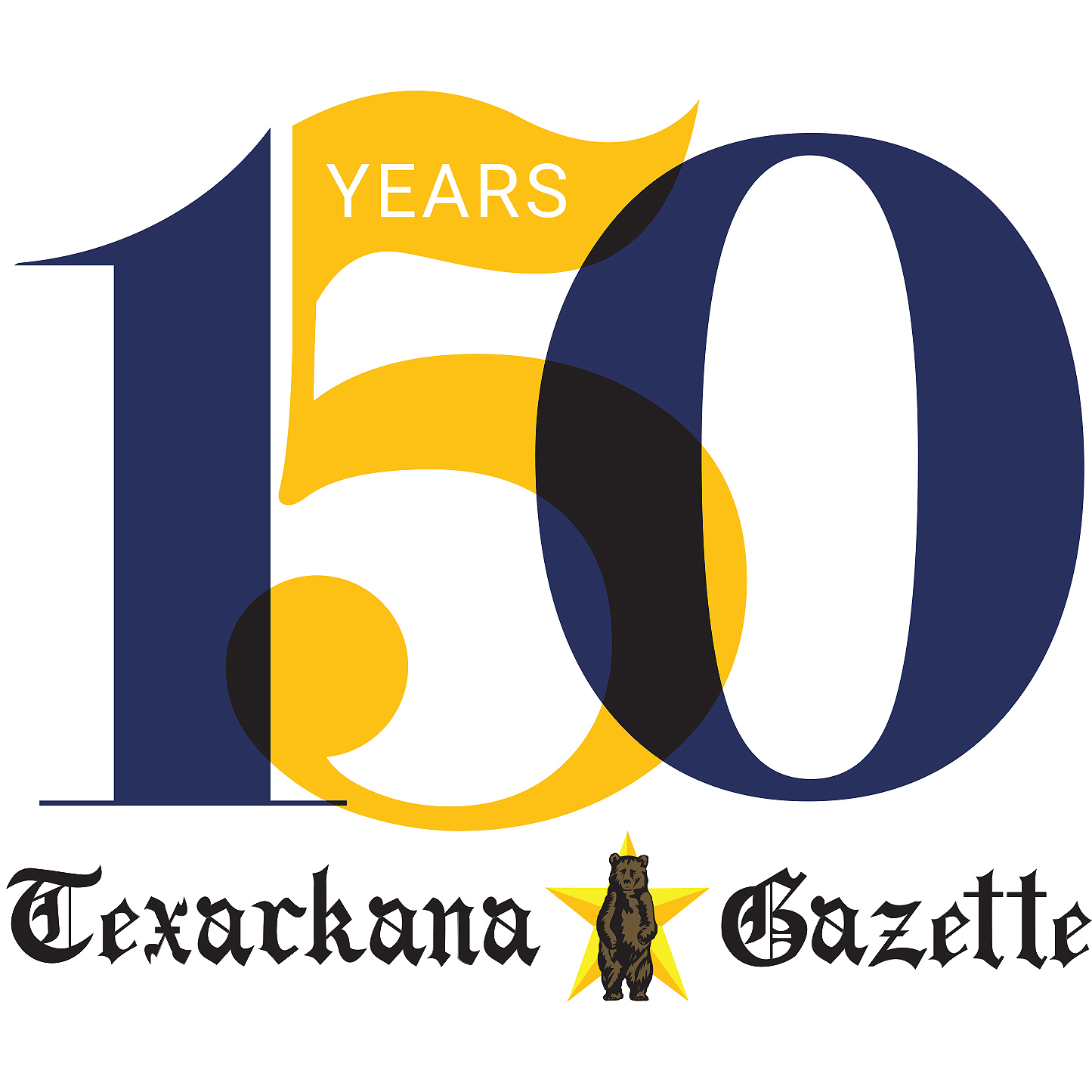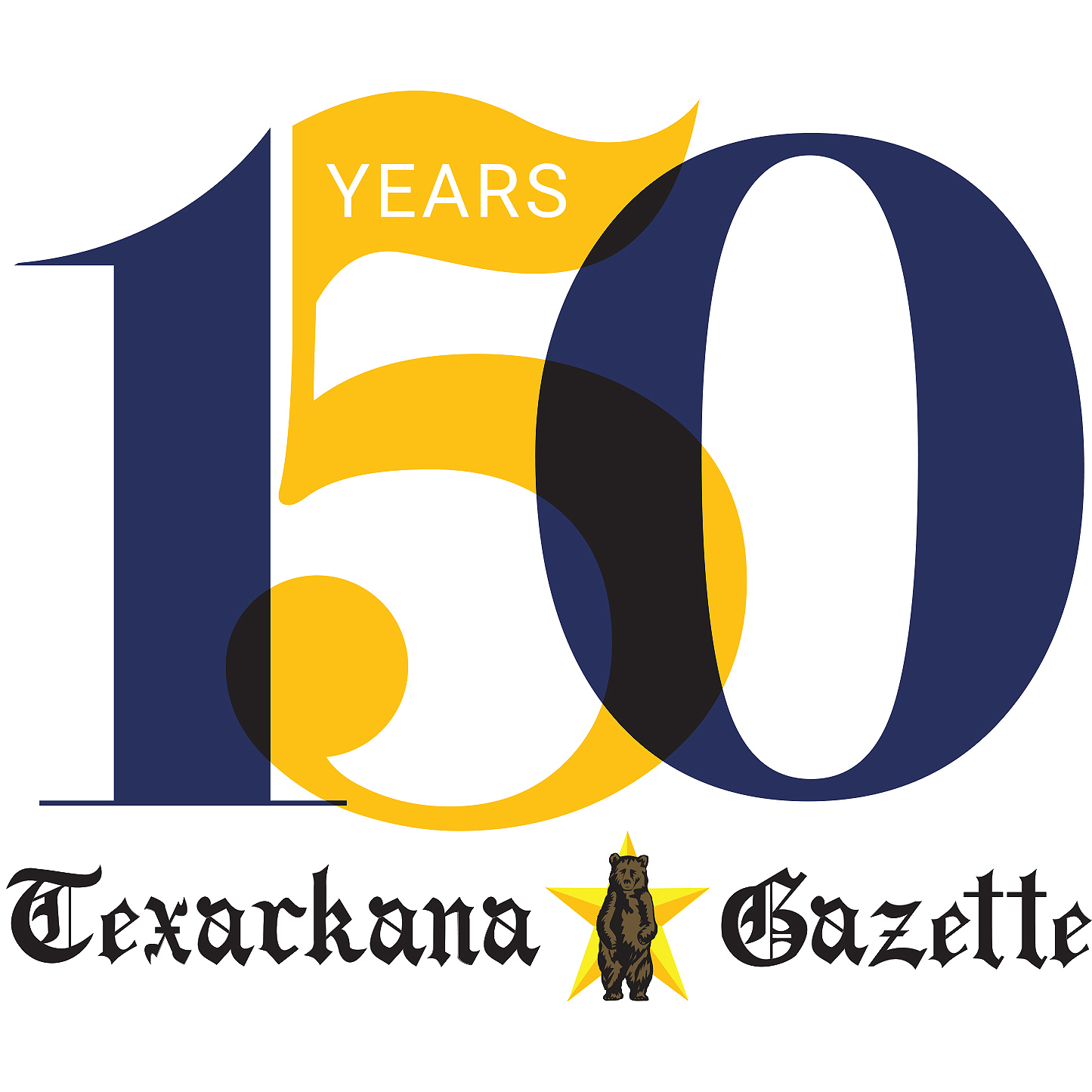Episode Transcript
[00:00:19] Speaker A: Did you know that the Texarkana Gazette is 150 years old this year? Dr. Laura Sykes.
[00:00:26] Speaker B: Wow, that is so old.
[00:00:28] Speaker A: I know, it's crazy. We're celebrating all year long and you're here to talk about this project we're doing. Every month we're going to publish a few pages of stories that happened during that month over the years that the Texarkany Gazette has been in operation. February's is coming out soon, but we've got January's here in front of us. And we just wanted to sort of look through it and talk about some of the stories that we were able to dig up in the Gazette over the years.
[00:01:09] Speaker B: First of all, let me just say how adorable it is how you guys have laid this out. It looks like a newspaper, but all the articles are from different times and it's really sweet.
[00:01:18] Speaker A: Yeah, that's our design team. So kudos to them.
[00:01:22] Speaker B: I think it's really cool. The headline here is contract let for Texarkana's new hotel. Right.
[00:01:30] Speaker A: Which of course, January 23, 1920. So that must be the grim. That's right.
[00:01:37] Speaker B: Okay, just checking.
[00:01:38] Speaker A: The Texarkana Hotel company is who started that venture. And this was before they had named it, named the hotel, I believe.
[00:01:49] Speaker B: One thing I also think is really great here because we have so many college football fans and football fans in general. We have some little sporting events from the past that are coming up in here. We have what's on TV during these times.
We even have an article about Y2K. Now I remember Y2K. So I'm not sure if that counts as ancient history yet.
[00:02:11] Speaker A: Not quite.
[00:02:13] Speaker B: But it tells us about how Tetrakana was thinking about the approach of Y2K.
So I think that this is really cool because it can help you to imagine what it would have been like in the past to be reading about some of these different topics and you can see how it was discussed here locally.
[00:02:34] Speaker A: Yeah, I'm just looking at this. January 30, 1951, we had hominy snow and sleet falling on frozen ground.
[00:02:46] Speaker B: Well, that's.
[00:02:46] Speaker A: You never heard of hominy snow?
[00:02:48] Speaker B: I mean, it makes me hungry for grits.
[00:02:50] Speaker A: Right. But yeah, I guess hominy is a big white puffy.
[00:02:54] Speaker B: A big puffer. Yeah, that's really cool. I mean, I think that that is probably very unique to this area. Way to describe it. I don't think they're calling it. Yeah, maybe I'm wrong. Maybe that's a common thing. We have some interesting, interesting articles here. About the passing of Ricky Nelson. Some big.
[00:03:18] Speaker A: I'm old enough to remember that it was a New Year's Eve when Rick Nelson, who, if people don't remember, was a member of the Nelson family who had a sitcom and he was a performer, singer. And in 1985, six New Year's Eve, his plane crashed in northeast Texas about a mile southeast of DeKalb. Wow.
[00:03:55] Speaker B: I didn't realize it was so close to here. Yeah.
[00:03:57] Speaker A: And he, he died that night at 45. Only 45 years old.
[00:04:02] Speaker B: See, I'm learning some new stuff from this, this page as well from this edition. If you're an employee of the university, as I am, you will see here that it was in January of 1942 that Texarkana College got its big funding bump from the FDR administration.
So just all kinds of things interesting to different types of people. I also want to give a shout out to the murder that is on the front page from 1914 when a man named Eugene Mason is found guilty of murder in Houston, Texas. So if you're into true crime, we'll bring you back to the day.
[00:04:46] Speaker A: Though the jury deliberated for 16 hours on this verdict, it was not a question of guilt or innocence of the accused upon which they debated and which had delayed them from reaching a verdict last night, etc.
Sort of an older writing style, too.
[00:05:02] Speaker B: Yeah. It talked about him wrestling with his conscience over the alleged crime.
[00:05:06] Speaker A: A little more colorful back then, right?
[00:05:09] Speaker B: You should bring more color back to the Texarkenne Gazette.
[00:05:11] Speaker A: I'll give it a shot, see how far that gets.
[00:05:16] Speaker B: So, yeah, this is just really neat. It'll take you back in time. I know a lot of people are very interested in sort of on this day type of thing. So this is gonna bring everyone a little glimpse into this type of things that people in Texarkana would have been talking about on the regular in the past.
[00:05:32] Speaker A: So everybody keep your eyes open. We're going to be coming back to these month by month and just taking a look at them. Very interesting stuff. So just keep an eye on the print edition of the paper and you'll see it there.
James Rice here with some interesting and exciting news about the Gazette's 150th anniversary year, 2025.
What is that, James?
[00:06:04] Speaker C: Hey, Carl. Yes. So thanks so much for having me on. The Community News Project is an initiative that we're starting today where we are seeking philanthropic donations for the Texarkana Gazette to sustain publication of local news and reporting local news in Texarkana for the next 150 years. This year is our 150th anniversary for the Texarkana Gazette. We've been publishing continuously since 1875, but one thing people don't know is we have not turned a profit since 2018. You know, we've continued to adjust our business model and look at different ways of securing revenue and being more efficient in our expenses. But our company, Wacomedia, which is the parent company of Texas Canada Gazette, is dedicated to funding a huge newsroom in comparison to papers our size, which means we run higher expenses. And our goal is to create a product and a paper that accurately reflects the community which we serve. And, you know, we're at a point that we need to find new ways to sustain our business.
[00:07:08] Speaker A: So what are people going to be seeing this year, and how can they help out?
[00:07:13] Speaker C: Yeah. Yeah. So there's two things we're doing this year to really celebrate the 150th anniversary of the Gazette.
[00:07:18] Speaker B: One.
[00:07:18] Speaker C: One is basically honoring all the stories, the reporters, the content that's come before. We'll be printing a monthly, I like to call them wrappers, but effectively what they are, four page sections at minimum, that will go around a Sunday edition of the Texas Grant exit each month. And we'll print articles, old articles from the last 150 years. For instance, in this January's edition, we'll have articles from 1884 all the way up to 2000 and everything in between. So that's one thing folks can look for.
We'll have some interactive information online. We'll have a monthly podcast where we look at all these stories that we're reprinting and the importance they had on the community. And then there's the community foundation aspect of it and the community journalism project. And readers that feel so inclined to sustain our business to help us can donate by logging on to a website that we'll have attached to the story of this podcast or by dropping by the Texarkana Gazette and writing a check or giving us some money to hand over to the Arkansas Community foundation chapter in Texarkana. And it's important to note that the Arkansas Community foundation is the ones that are managing all this money. And all this money is going to go back to the newsroom. The goal is to fund continued stories and continued production of news. It's not going to go anywhere else. It's not going to go into executive payroll or to operations of the business, say, the building, to keep the building, the lights on. It's going strictly to paychecks or expenses. Associated with reporters.
[00:08:44] Speaker A: And people will be able to see who has given money, correct?
[00:08:50] Speaker C: If they'd like, yes. So anyone who donates over $150 will be thanked in ads every single month. If they'd like to be. If they'd like to be anonymous, that, of course, is fine, too. But anything over $150 we will thank publicly. We'll also have an event in November of this year celebrating 150 years of the Gazette. And anyone who donates $150 over for the first 150 donations will be invited free of charge to come to this event and celebrate with us. So the first 150.
[00:09:18] Speaker A: So excellent. It's just another way that you can support local journalism right here in Texarkana.
[00:09:25] Speaker C: And that's our goal, really. I mean, I don't, you know, a lot of communities take newspapers for granted, and it's easy to do that, but the reality is that there are now 55 million Americans who don't have access to local news. And the situation we have today is one where the way that newspapers make money and accrue revenue has changed drastically in the last 20 years. And some have weathered that storm better than others. But we have to seek new ideas and new initiatives on sustaining our business model. And this is just another way that we can sustain local journalism and keep local journalism alive in Dexter, Canada, or.
[00:09:59] Speaker A: Hopefully another 150 years.
[00:10:01] Speaker C: Yeah, absolutely. I probably won't be around to see that, but I certainly hope that semi, my successor, several lines, several, several lines down the road will, will, you know, be able to. To have. Have some, some help from these gifts that hopefully will continue for. For years to come.
[00:10:17] Speaker A: All right, great. I'll put links to everything in the show notes.
[00:10:23] Speaker C: That's great.


